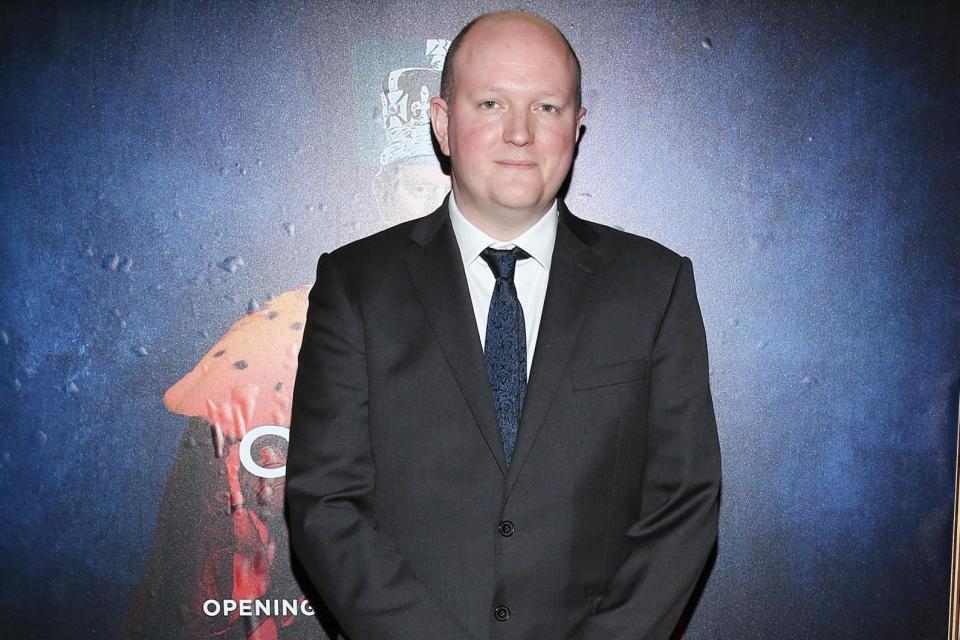Mike Bartlett: 'If any art form should reflect all of society, it's theatre'

In our Play Talk series, playwrights discuss the joys and struggles of the writing life. This week, Mike Bartlett shares what inspired him to write his first play, Not Talking. It's currently being revived at the Arcola Theatre.
What was the first play to make you want to write plays?
I saw Mark Ravenhill's play Shopping and F***ing when I was 16. It was the first play I saw that felt truly contemporary, where characters spoke in a way, and about subjects that I recognised. Soon afterwards I first saw a Caryl Churchill play – Top Girls - and that showed me the playfulness, power, danger and of language.
What was your background to becoming a playwright?
I started acting in school plays, then followed that through at university. I didn't know anyone involved in theatre at all, so relied entirely on new writing programmes at the Finborough, the Bush, the Arcola and the Royal Court theatres to encourage me, teach me, and allow me to fail. I was hugely lucky these places existed and were so open to young writers they'd never heard of before.
What’s the hardest play you’ve ever written?
Earthquakes In London was a huge play, taking place across different locations, very different characters and different timeframes. It took a long time to make it coherent, and to find how it all connected, but I loved that journey.
Which brought you the most joy?
My play Cock, about fluid sexuality, seemed to chime with a lot of people and speak about their experiences. I was amazed at the investment people had in the play watching it. It's everything a writer could want - that you connect and people take the play out with them, and think about it in their lives.
Which playwrights have influenced you the most?
Caryl Churchill, Tony Kushner, Debbie Tucker Green, Edward Albee, Shakespeare. Recently: Ella Hickson , Annie Baker and Chris Thorpe - just fantastic writers.
What’s been the biggest surprise to you since you’ve had your writing performed by actors?
I suppose just how much work is done on a play in the rehearsal room. Actors’ and directors’ attention to detail to examine every piece of punctuation and every second of the text is just astonishing, and leads to real collaboration. When it's working, that's my favourite place: working in a room with actors and a director on a new play.
What’s been your biggest setback as a writer?
Perhaps when my play 13 was performed at the National Theatre. I loved what the play was trying to do, and worked so hard on it, but it didn't land with audiences or critics at the time. The criticism, in person, print and on Twitter, felt very exposing - especially as the play was quite raw and open in its form. But I learned a lot, and you can't really complain - that's the deal when you're lucky enough to have a play on.
And the hardest lesson you’ve had to learn?
To slow down. I love dialogue and I get bored easily, but some of the most profound moments happen in their own time, in silence.
What do you think is the best thing about theatre? And the worst?
Theatre allows us to come together in a room and collectively imagine what it's like to be in someone else's shoes. That's of huge value in an increasingly polarised and conservative world. The worst is how conservative theatre itself has been, and if we're honest, in many places, continues to be. If there's any world and art form that should be fully open and reflect all of society, it's theatre.
What’s your best piece of advice for writers who are starting out?
Write. Just write. Then edit it. Then try to have it performed and learn from how it fails. Then repeat. Then, hopefully, continue to do this your whole life.
Are there any themes and stories you find yourself re-visiting with your plays?
Not consciously. I love each play to be very different. I'm sure if you analysed them you'd find things, but I'll leave that to other people, if they're interested!
Are you on Twitter? Do you find it a help or a hindrance as a writer?
No. I'm happy expressing my views on the world in my work. I also suspect I'd find it too fascinating. When you're trying to write, you're looking for any distraction.
Why did you write Not Talking?
When he was 22, my grandfather registered as a conscientious objector in the Second World War. I found that so brave, but equally challenging, as he was essentially saying he wouldn't fight the Nazis. I was also 22 when I started to write the play and wanted to explore my feelings about that - about the army, pacifism and when we choose to speak out, or fight back.
How do you spend opening night?
In a state of nervous anxiety, until the show begins. Then, once I'm watching, I love the actors for their bravery.
What’s the best play you’ve seen this year?
The Writer , by Ella Hickson, currently playing at the Almeida Theatre.
What’s your favourite place to watch theatre in London?
I can't choose. The all do different things. But going in as a groundling at the Globe, on a summer's evening, surrounded by people from all over the world - that takes some beating.
What other art forms do you love when you’re not in a theatre?
Television, music and eavesdropping.
If the Prime Minister said they were abolishing the theatre tomorrow, what would you do?
Get some friends round and tell them a story. Theatre would be instantly restored and we'd be breaking the law, which theatre thrives on. It's supposed to be subversive.
Not Talking is at the Arcola Theatre until June 2; arcolatheatre.com

 Yahoo News
Yahoo News 